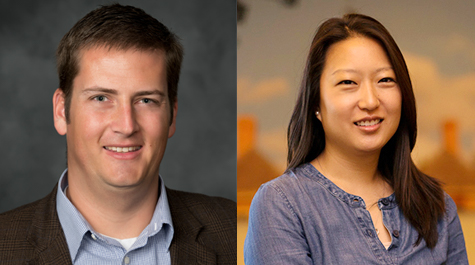Patrick Mullen receives Reves Center Fellowship
Children in military families bring their unique strengths and experiences into the school setting, and also face a particular set of challenges as they move between domestic and international schools. Patrick Mullen, assistant professor in the William & Mary School of Education, received $10,000 as part of a Reves Center Fellowship to dig more deeply into the experience of school counselors in international Department of Defense Education Activity (DoDEA) K-12 schools with the goal of preparing future school counselors to more effectively assist children of military families.
“It’s important for me as a faculty member to realize the needs of military-connected youth so that we effectively train school counselors working with these students and families. Many families in our local community are connected to the military and we cannot ignore the implications this has for our work as school counselors,” he said, crediting second-year doctoral student Nancy Chae for first suggesting international school counseling as an area of future focus. The fellowship is intended to support a student-faculty research partnership for an international project. Mullen also recalled a personal experience with military family implications when his own elementary-age children suddenly had to cope with the transfer of their school friends to a new active duty station elsewhere in the world.
“What came out of some early conversations with Nancy was that there as an opportunity to research on an international level, and that there is limited research on international DoDEA schools. The grant was written with the intention to look at the experience of students within international DoDEA schools and to look at the type of services that are provided by school counselors in these settings,” he said.
As a result of expressing an interest in this avenue of research, Mullen has been invited to become a faculty affiliate with the Verona Counseling Institute in Italy to train school counselors, and to serve as an associate editor for the Journal of School-based Counseling Policy and Evaluation (JSCPE).
“One of my goals is to help US-based school counselors respond to the needs of students coming into and leaving the international DoDEA schools,” he said. “There is little information about the personal or social needs of these kids. They mostly focus on transitional needs, such as aligning courses between school systems.”
Mullen argued that school counselors can play a leading role in supporting students during a parent’s deployment while also attending to the ways in which all the demands of military life impact young people.
Mullen stressed that the grant will look at both the strengths and deficits related to students’ transitions and attendance in international DoDEA schools. Also, the grant will examine the type of work school counselors do in these schools, which may help inform students about prospective careers working internationally. Along with a small group of graduate students, Mullen and Chae will be conducting interviews with DoDEA school counselors by phone and visiting select DoDEA schools.
“I continuously hear that these schools have a lot of strengths. They offer smaller class sizes, they are very structured, they are a cultural immersion experience, and they are led by passionate educators,” he pointed out. “These schools and families also have some unique needs.”
